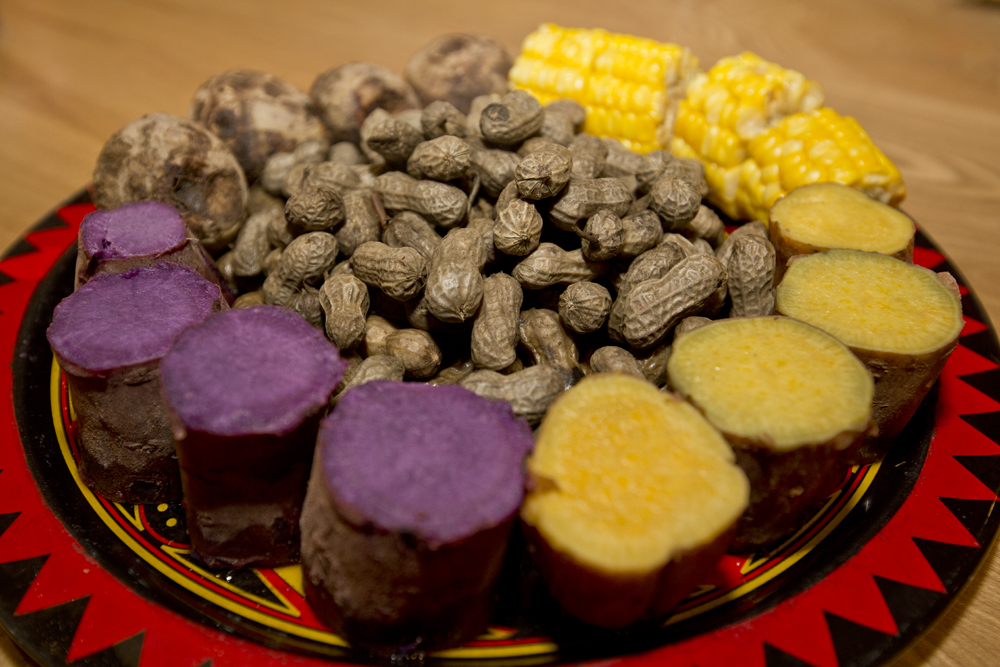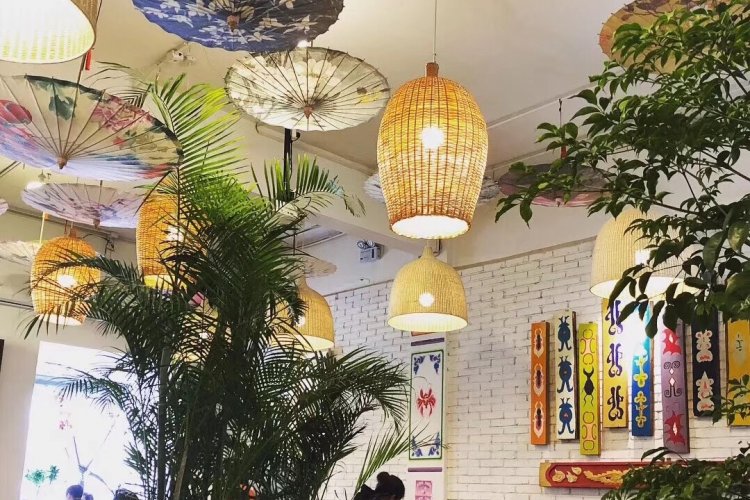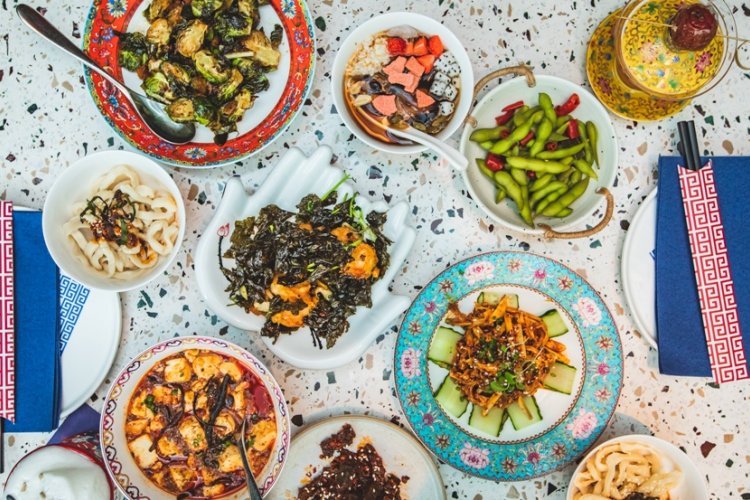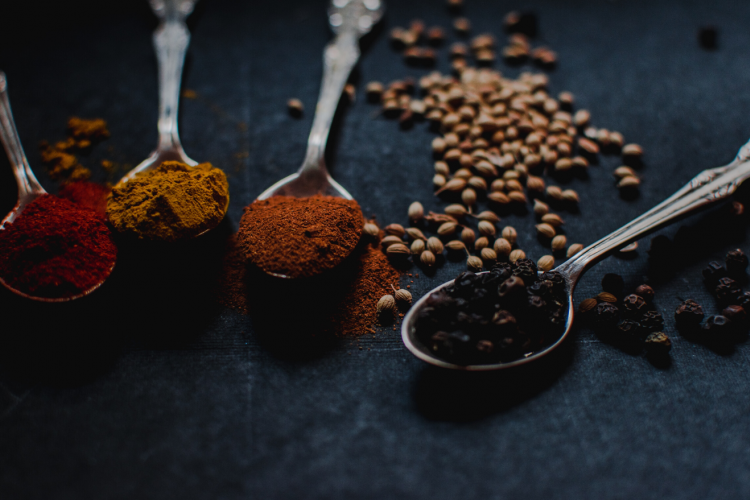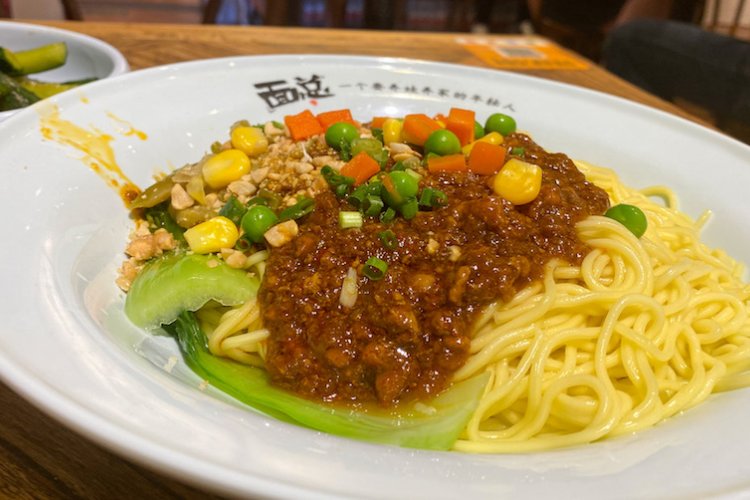Cultural Cuisine: How Food Ties Into the Everyday Life of Liangshan’s Yi Minority

This post is sponsored by Asiniuniu, Beijing's most unique Sichuan restaurant serving the distinctive cuisine of Sichuan’s Yi Minority.
Mao Wendong and Jiliyige both moved to Beijing in 2014 to work as waiters at Asiniuniu, a Sanlitun restaurant that specializes in the Yi minority cuisine of their hometown in Liangshan. While this new cosmopolitan setting is an exciting change of pace from the placid Sichuan prefecture where they born, the pair still frequently find themselves nostalgic for the foods and flavors of their hometown.
Luckily Mao and Jili along with the rest of the Yi staff are able to satisfy a good portion of their homestyle cravings eating the traditional Liangshan dishes served at the restaurant.

When it comes to food, the Liangshan Yi are not ones for subtlety. According to China Highlights this minority culture’s dishes usually fall into one of two categories: sour or spicy. The latter is especially prevalent for Liangshan Yi cuisine, because of the prefecture’s location in Sichuan, China’s famous destination for peppercorn and all things fiery. Many staple dishes are more subdued and starchy, like buckwheat pancakes and unpeeled boiled potatoes. But regardless of the flavor or degree of spiciness, each of those dishes has a consistent feature that makes the Liangshan Yi proud: the freshness of the ingredients.

This is especially the case for Mao Wendong’s favorite dishes from home. He is passionate about the region’s freshwater fare and describes how he would often venture out onto Qionghai Lake or one of the nearby shores back home to catch fresh fish and shellfish back home in Liangshan. “I would often go to the river and catch lobster by hand,” he explains. “They would have their own little holes near the river, so all I had to do was find them to catch the lobsters.”
Aside from his love for freshwater crustaceans, his favorite dish at Asiniuniu is huili chuan fuyu (会理船夫鱼), a rich and nourishing golden-colored porridge served with fresh slices of Liangshan perch and rice wine.
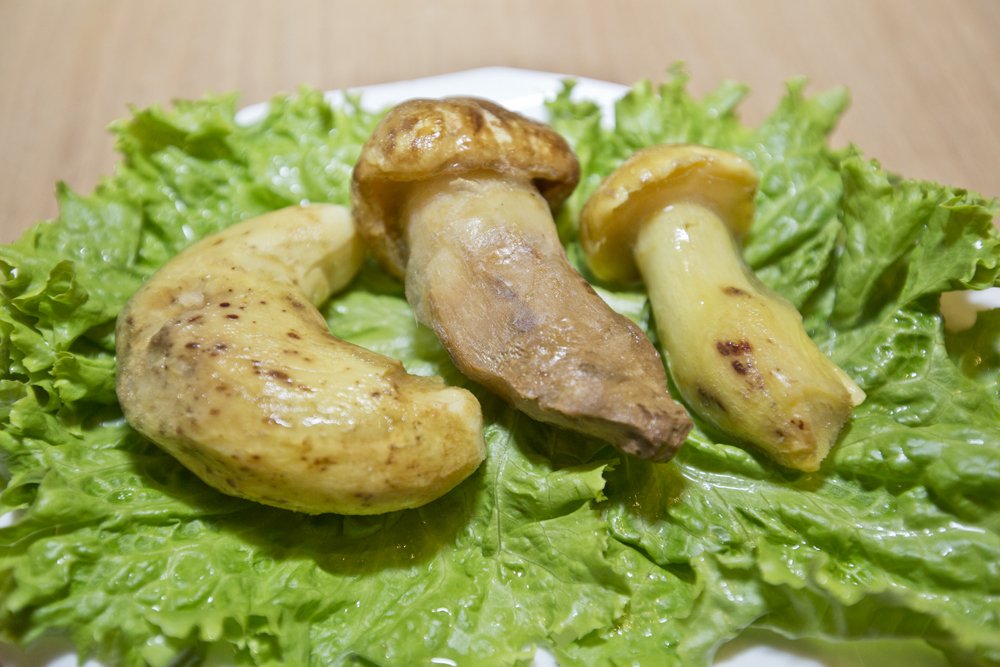
Lili Zhang, Sales and Marketing Manager of Asiniuniu, says that Liangshan is also known for its abundance of mushrooms, which grow throughout the prefecture and are enjoyed by both the Yi and Han people of the region. She explains that the restaurant regularly uses three types of premium Liangshan mushrooms – the first, and most fragrant, is the massive e dan jun (鹅蛋菌) mushrooms, which are thick and long like bone, and more flavorful than other varieties. The second variety, the song rong tricholoma matsutake, are stubbier with less pronounced heads and a subtler flavor. These are typically flecked with dark brown streaks across their otherwise golden brown shade and are said to help prevent cancer. The third variety are the niu gan jun (牛肝菌)bolete mushrooms, which are much plumper, and more meatier tasting than the song rong (松茸) matsutakes. Zhang says that niu gan jun mushrooms are rich in nutrients and have antiviral and sugar binding properties, the latter of which aids in digestion and can even boost one’s immune system. Above all, Zhang touts the fresh taste of these wild mushrooms, which are the key ingredients in such house specialties as the yejun tuji bao (野菌土鸡煲), and says that they are all organically sourced from Liangshan.

Like his colleagues, Jili also misses food from back home – especially a simple dish called the “Cereal Platter” (jiankang culiang bo, 健康粗粮钵), which consists of peanuts, corn and, his most favorite treat of all: Liangshan potatoes.
Jiliyige explains how these fluffy, filling staple menu items are different from other varieties: “They grow very big and contain a lot of sugar, because the soil in Liangshan is special,” he says, adding that also makes them turn a deep shade of purple or red, instead of the typically yellow potatoes grown elsewhere.
“This potato can be cooked in many ways – it can be toasted, made into soup or stir fried. But I usually steam it and add some chili pepper powder,” Jili explains. “Whenever I eat this dish I feel less homesick. Although I can’t find a fire pit here in Beijing to roast these potatoes like I sometimes do back in Liangshan, our restaurant steams the potatoes just as well as we do back home can. But I still look forward to going back soon and roasting some on an open fire.”
Photos: Uni You, Autan (Flickr)
Related stories :
Comments
New comments are displayed first.Comments
![]() admin
Submitted by Guest on Thu, 05/14/2015 - 16:16 Permalink
admin
Submitted by Guest on Thu, 05/14/2015 - 16:16 Permalink
Re: Cultural Cuisine: How Food Ties Into the Everyday Life of...
what word would you suggest in the place of "unique" .. distinctive?
Validate your mobile phone number to post comments.

